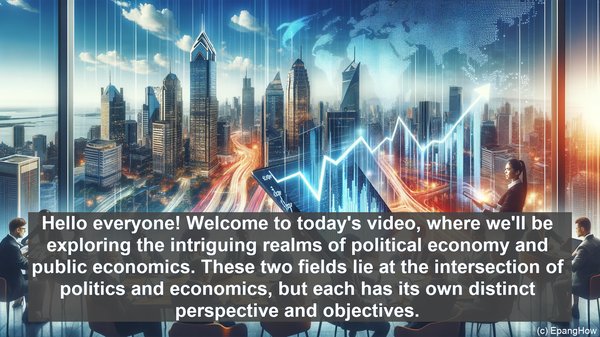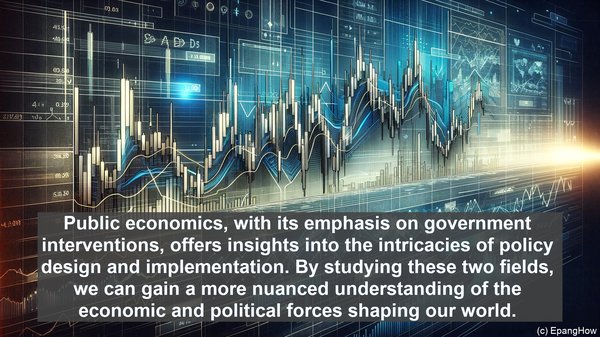Introduction: The Intersection of Politics and Economics
Hello everyone! Welcome to today’s article, where we’ll be exploring the intriguing realms of political economy and public economics. These two fields lie at the intersection of politics and economics, but each has its own distinct perspective and objectives.

Political Economy: A Holistic Approach
Political economy is a broad and interdisciplinary field that examines the relationship between political and economic systems. It seeks to understand how political decisions and institutions shape economic outcomes. In essence, it delves into the complex interplay between power, governance, and economic processes. Political economy analyzes the distribution of resources, the role of institutions, and the impact of policies on various stakeholders. It often takes a historical and comparative approach, studying different countries and time periods to draw insights.
Public Economics: Focusing on Government Interventions
On the other hand, public economics zooms in on the role of government in the economy. It concentrates on how the government’s actions, such as taxation, spending, and regulation, affect resource allocation, market efficiency, and overall welfare. Public economics explores questions like: What should be the optimal level of taxation? How can public goods be efficiently provided? It also delves into issues of income distribution, externalities, and market failures. Public economists often employ mathematical models and empirical analysis to address these questions.

Overlap and Distinction: Policy Analysis
While political economy and public economics have their unique focuses, there’s also significant overlap between the two. Both fields are concerned with policy analysis. However, political economy tends to take a broader view, considering not just the economic implications but also the political feasibility and social consequences of policies. Public economics, on the other hand, may delve deeper into the technical aspects of policy design and evaluation.
